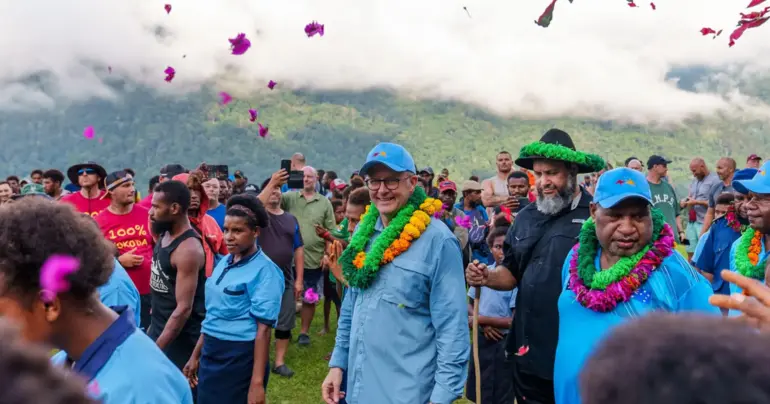Empowering Samoan youth for a stronger democracy
The Commonwealth Youth Forum in Samoa highlighted crucial themes: the importance of education, the need for youth involvement, and the role of character development in building a strong democratic society. For Samoan youth, this forum was more than just an event; it was a rallying cry for their voices to be heard in shaping their futures. Understanding what the Commonwealth means to them is essential in this context, as it represents a network of shared values, collective responsibility, and collaboration on critical issues that touch their lives.
For the people of Samoa, being part of the Commonwealth is about more than political ties; it's about a commitment to working together for a better future. It means that young Samoans are part of a larger community of nations interested in democracy, human rights, and social justice. This connection is empowering, providing opportunities to learn from one another and advocate for local and global change.
One of the most powerful messages from the forum came from Professor Luis Francheschi, who emphasized that democracy requires an educated electorate. This message resonates deeply in Samoa, where young people are constantly faced with the challenges of misinformation and political apathy. Educating our youth isn’t just about teaching them to vote; it involves equipping them with the skills to think critically, understand their rights, and engage in meaningful discussions about their governance. We need to foster a generation of informed and active citizens, able to navigate the complexities of democracy and advocate for those who are often overlooked.
The forum also highlighted the role of character development in shaping future leaders. While educational institutions in Samoa have expanded, they must do more than just teach facts and figures. We must prioritize instilling values like integrity, empathy, and responsibility qualities that define true leadership. By investing in character education, we can help our youth understand not only the “what” but also the “why” behind their responsibilities as citizens.
Moreover, conversations about youth involvement in governance offered exciting possibilities. Hon. Mario Bowleg’s insights on using sports as a platform for youth engagement suggest that young people can find their voice in familiar environments. Imagine Samoan youth bringing their passion for sports into discussions about community needs, creating programs that support not just athletic development but also personal growth and leadership. Engaging young people through their interests can spark their passion and help them feel empowered to make a difference.
Human rights advocacy, a crucial topic at the forum, reminds us that the struggle for equity is not just a distant concern but something that resonates with everyday life in Samoa. Too often, young people see human rights as a foreign concept, disconnected from their culture and values. It’s time to change that narrative. By incorporating discussions about human rights into our educational frameworks, we can help our youth embrace these principles as essential to their identity and community. They can become advocates for positive change, standing up for their peers and fostering a culture where everyone's rights are respected and celebrated.
The Commonwealth Youth Forum illuminated the incredible potential of Samoan youth to influence their society and build a stronger democracy. By emphasizing education, character development, and active participation, we stand at a crossroads where we can empower young people to shape their futures. It’s up to us educators, community leaders, and policymakers to create pathways that enable their voices to be heard and valued. Together, we can cultivate a generation of leaders who not only understand the value of democracy but are also excited to protect it and foster a more inclusive future for everyone in Samoa. Let us invest in our youth, not just as beneficiaries but as active, engaged citizens ready to make their mark on the world.











